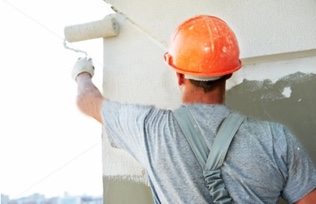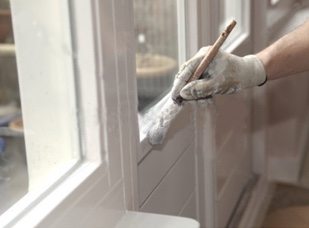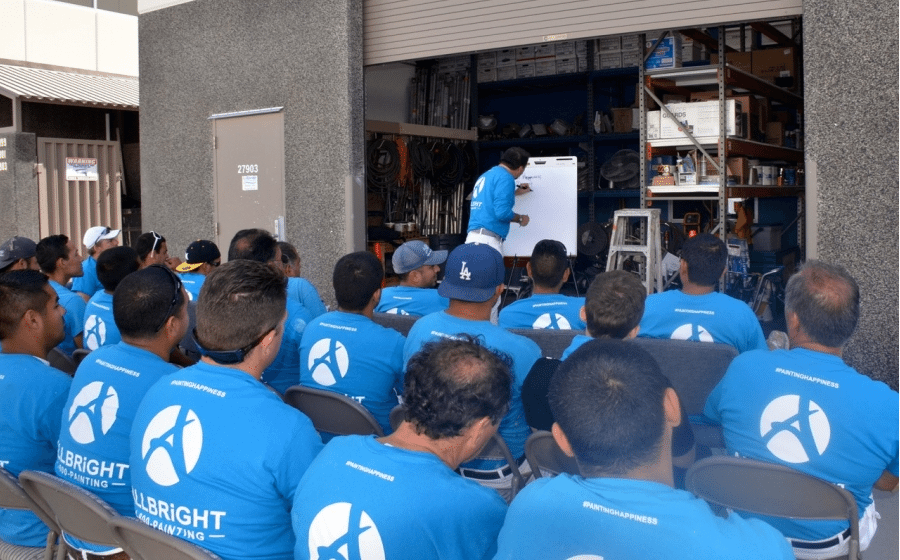There are several things to consider when you think about what type of work you want to do. Generally speaking, it’s better to do a few things well rather than trying to do it all. Consider what types of work are available in your area, what you are best equipped to do and what it is that you do well. This will help you to determine what niche you want to aim for and, in turn, the makeup of the crew you will need.
Hiring
 Depending on the size of your operation, I would suggest a mix of skill sets and levels. A strong superintendent to help oversee your operations is key to your success. This is especially true as you grow your company. At some point you will realize that you can’t do it all yourself; marketing, estimating, contract administration, supervising, hiring, and the list goes on, doesn’t it? A reliable and capable superintendent will not only protect your interests, but will also allow you to grow. This admittedly is the most challenging person to find. I have always started with someone who has a solid foundation in the trade, and who I know I can trust. You can build on their abilities from there if need be. One critical part of your superintendent’s job description will be to supervise and train your forepersons.
Depending on the size of your operation, I would suggest a mix of skill sets and levels. A strong superintendent to help oversee your operations is key to your success. This is especially true as you grow your company. At some point you will realize that you can’t do it all yourself; marketing, estimating, contract administration, supervising, hiring, and the list goes on, doesn’t it? A reliable and capable superintendent will not only protect your interests, but will also allow you to grow. This admittedly is the most challenging person to find. I have always started with someone who has a solid foundation in the trade, and who I know I can trust. You can build on their abilities from there if need be. One critical part of your superintendent’s job description will be to supervise and train your forepersons.

Depending on your volume, you will need some number of forepersons to run your crews. These key people should also have a proven track record as well as the capacity to work with and supervise people. There seems to be a common mistake that just comes naturally when we promote from within. That is when a foreperson position becomes available we automatically tend to pick our “best painter” for the job.
That seems to have some kind of logic to it, but I have found that
not all excellent painters are excellent managers.
On the other hand, sometimes they are. I would just suggest to you that you need to be aware of this potential pitfall and promote carefully, and be willing to commit to the necessary training. The main body of your workforce will normally be made up of journeymen and apprentices. If you don’t have a Union affiliation, you may just refer to them as “painters” and “helpers”, but they are also vital to your success, as they are the people “getting it done” for you.
Your avenues for finding help are probably only limited by your imagination. I would suggest a few of the more common ones: Membership in a local Union is one obvious resource. Union halls can provide skilled people on short notice, depending on availability of course. .
- Job Readiness Programs can provide potential employees
- Linkedin is a social netwrking site
- Painter Job Hub is a terrific place to find qualified painters
- Painttalk is a popular painters forum with members from all over
 One last word on hiring; I would encourage you to avoid falling victim to the pressure of demand. You will always have commitments to meet, but a “warm body” may provide only “cold comfort”. Put another way, you may fill a position, but if that person doesn’t show up for work consistently, or when they do, don’t perform, they are more of a liability than an asset. Learn to evaluate your personnel quickly. In my opinion, it shouldn’t take more than a week or two to figure out if a person is a good fit. I find that people most often fit into one of four categories: they are a “keeper”, they need training (provided they are trainable), they need motivation or they need a different job.
One last word on hiring; I would encourage you to avoid falling victim to the pressure of demand. You will always have commitments to meet, but a “warm body” may provide only “cold comfort”. Put another way, you may fill a position, but if that person doesn’t show up for work consistently, or when they do, don’t perform, they are more of a liability than an asset. Learn to evaluate your personnel quickly. In my opinion, it shouldn’t take more than a week or two to figure out if a person is a good fit. I find that people most often fit into one of four categories: they are a “keeper”, they need training (provided they are trainable), they need motivation or they need a different job.
Firing
That seems a good segue into the topic of Firing, which I will keep short. Having to let someone go is never fun for anybody, but it is nonetheless part of running a business. If you are fortunate, hire wisely and carefully and treat your staff well, you will hopefully have people that will stay with you for years. There are times however when we all have to terminate someone’s employment. This should only come after you have exhausted the steps mentioned above, by providing training if it is needed or the appropriate motivation (each person is different), and giving everyone a fair chance. If it does become necessary to part ways it can, and always should be, done with courtesy and respect.
Training
 Consistent and thoughtful training is an ongoing and critical part of any successful company. You are primarily responsible to see that you have a program in place to meet this goal. You train your superintendent, he or she trains the foreperson who in turn trains the crew; it starts with you. I often hear a foreperson complain that they don’t have time to train because they have a production quota to meet. It falls on you to empower them to take the time to improve the skills of those under them. It is surprising how little time it can take to stop and show someone a correct brush or spraying technique, and what lasting returns that investment can achieve.
Consistent and thoughtful training is an ongoing and critical part of any successful company. You are primarily responsible to see that you have a program in place to meet this goal. You train your superintendent, he or she trains the foreperson who in turn trains the crew; it starts with you. I often hear a foreperson complain that they don’t have time to train because they have a production quota to meet. It falls on you to empower them to take the time to improve the skills of those under them. It is surprising how little time it can take to stop and show someone a correct brush or spraying technique, and what lasting returns that investment can achieve.
This mentoring mentally needs to be ingrained in your crews, as it pays dividends directly to your operations.

Thanks for your insight with this article. It is so helpful. I struggle with the firing of my employees the most. My tendency is want to give them every last chance to stay on with our company.
I understand Eric, it’s never easy, but it is a business. The best we can do is to provide reasonable opportunities and temper everything with a good dose of respect, whatever the outcome.
Lynn Jackson